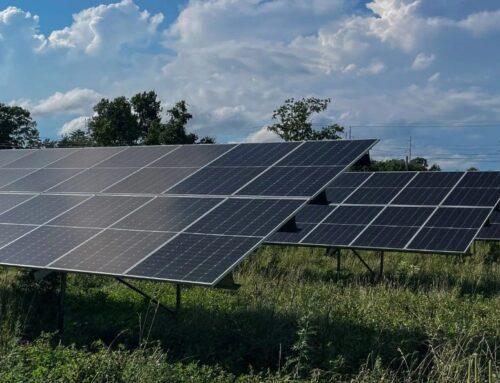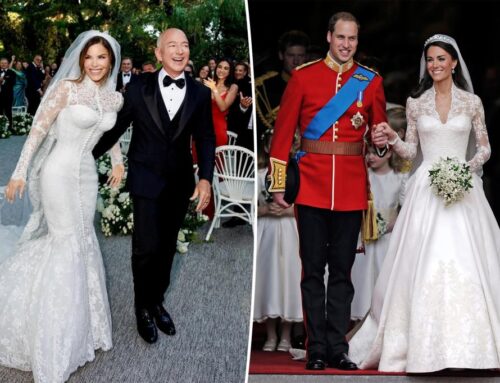Environmental leader focuses on food sovereignty in Meskwaki
July 3, 2025

Shelley Buffalo, 2024 Environmental Leader Award recipient. PHOTO COURTESTY OF THE CENTER FOR RURAL AFFAIRS
High on a hill overlooking the Iowa River are two homes surrounded by woods and animals, including dogs, horses, goats, birds, deer, and more. From her vantage point in the Meskwaki Settlement, Shelley Buffalo watches the seasons change and nature flourish as she works to update her house.
To celebrate the transition of the seasons, in March, she completed “Sugar Camp” alongside her community, tapping trees for their sweet sap then boiling the sap down into syrup.
“A lot of people say when that sap starts running, that’s when the new year begins,” Shelley said. “Joy comes from leaning into living in a way that’s more attuned to the seasons. The ebb and flow, and push and pull of life within the season.”
Shelley is a creative within her community, who focuses on food sovereignty, environment, and rebuilding the village. She has held many roles with titles of seedkeeper, community organizer, and more. But she likes the title of “decolonial pathfinder” the best.
Shelley’s commitment and strong presence in this type of work in Iowa, is why she is a recipient of the 2024 Environmental Leader Award, an independent project administratively supported by the Center for Rural Affairs and made possible by the Walton Family Foundation.
The award honors accomplished leaders in the field of environmental stewardship, as well as recognizes individuals with a proven track record and promise of future advancement in the field, prioritizing individuals who work in rural communities.
“I’m very grateful for the recognition and the award,” Shelley said. “My little ‘Shelley’ stone that I dropped in the pond does have ripples, and perhaps little ripples are better than huge waves.”
Shelley’s work on food sovereignty and environment has been integrated into her life for years. She has served as farm stand coordinator of Red Earth Gardens, a Meskwaki Nation enterprise, as coordinator of the Meskwaki Food Sovereignty Initiative, a seasonal seed steward at Seed Savers Exchange, and a contributor to the Chicago Field Museum’s “The Future is Indigenous,” among other roles as community organizer, educator, artist, and thought leader.
Currently, she runs Water Panther Consulting offering support for rethinking organizational systems and approaches through decentering transactional and hierarchical patterns.
Shelley said her relationship with food took a new direction in 2014, when she developed Graves Disease, an autoimmune disorder. She felt a need to address her lifestyle and the foods she eats.
“I thought I was eating healthy until I learned about leaky gut and how it contributed to my autoimmune issues,” she said. “Ultimately, it wasn’t just about my diet. I had patterns and coping mechanisms that no longer served me. There was a growing need to take back what had been stolen, my Indigeneity, my natural way of being in the world. That’s where the ‘decolonial pathfinder’ comes from, finding my way home.”
She stepped onto the road of health and well-being, as well as began looking at alignment and natural order.
“Really looking at the natural state of a human being,” Shelley said. “Human beings do not have a completely different set of standards and rules, ways of being separate from the rest of what we refer to as nature. So, ultimately, that’s ‘decolonial pathfinder’ which is basically the red road, the Indigenous way.”
Shelley also identifies as neurodivergent; her brain works in a different way. She draws on that for pattern recognition, collection of information, and applying that to problem solving through creativity.
“I’m just leaning into those sensitivities now. They’re a good thing,” she said. “I think those sensitivities are ultimately Indigenous, which is being able to listen, to pay attention, and a commitment to living in a more natural state.”
One of her proudest accomplishments includes the contributions she made to the Meskwaki Food Sovereignty Program.
“As we all participate in this work, we’re building upon the foundations that were laid there before,” Shelley said. “I think that my little layer in the story is a pretty good one overall. It’s a pretty solid effort.”
In 2018, she helped Meskwaki host the Great Lakes Indigenous Food Summit, which she said influenced a lot of people’s lives within the community as well as the lives of visiting chefs.
And, prior to the COVID-19 shutdown, Shelley helped incorporate community meals which featured seasonal, local, Indigenous foods, including maple syrup in the spring, wild game in the winter, and a big fall harvest. Community members were even encouraged to bring reusable containers to make the event even more sustainable. Door prizes were provided that encouraged outdoor activities–for example, during the summer the grand prize was a package that included a kayak, fishing gear, life vest, and more.
When COVID hit, Shelley helped encourage community members to garden partially to counteract supply chain issues. Her program offered tilling services and dropped off seeds and transplants to homes, with a “how-to” packet.
Another contribution to the Meskwaki Food Sovereignty Program was creating a position called Ancestral Farming Manager. The ideal candidate would be a First Language speaker and someone with cultural knowledge about Meskwaki seeds as well as the plants and medicines. They needed to know about hunting, fishing, and ancestral foods.
Shelley’s efforts have had a positive impact on the number of community members gardening and utilizing the community gardens–gardens that are a part of Meskawki history. Prior to the smallpox epidemic, the community gardened out of one large communal garden space next to their summer village. This historical aspect inspired a present-day kinship garden.
“One of the most important things that should guide this framework is our need to rebuild our village,” Shelley said. “I think more and more people are waking up to that. The consumerist way of life and human centered individualism is not only wrecking our health, our communities, but it’s wrecking the earth.”
Shelley said human beings are dependent upon each other, going back to when the Meskwaki were in smaller bands organized around a village structure.
“Ecosystems are not separate from humans and their activities,” she said. “We had a way of life attuned to the seasons and attuned to our effect on the resources around us, everything we needed to survive and thrive. Everything is related. Animistic means everything has a spirit, an energy, a sacredness within all of creation. When I am immersed in this way of being I never feel lonely or incomplete. I feel so incredibly whole and connected. Then it’s back to the day to day, figuring out how to navigate in this current, unnatural system that’s called western civilization.”
Today, Shelley is making her ripples and finding ways to be Indigenous without trying. She helped her niece color her hair, and decided she needed color, too.
Throughout the winter, Shelley had been watching the redheaded and pileated woodpeckers. And, made a realization.
“After the fact, I was like, this [hair color] reminds me of a woodpecker,” she said. “I love it. And, my stepdad refers to carpenters as woodpeckers because of the ‘tap tap tap’ of the hammer. I’ve been just working on my house little by little but steadily.”
The parallel was there.
“This is perfect,” Shelley said. “I thought to myself, see, I’m Indigenous without even trying. I’m reflecting and celebrating the ecosystem around me.”
Rhea Landholm is communications manager at the Center for Rural Affairs.
Search
RECENT PRESS RELEASES
Related Post




